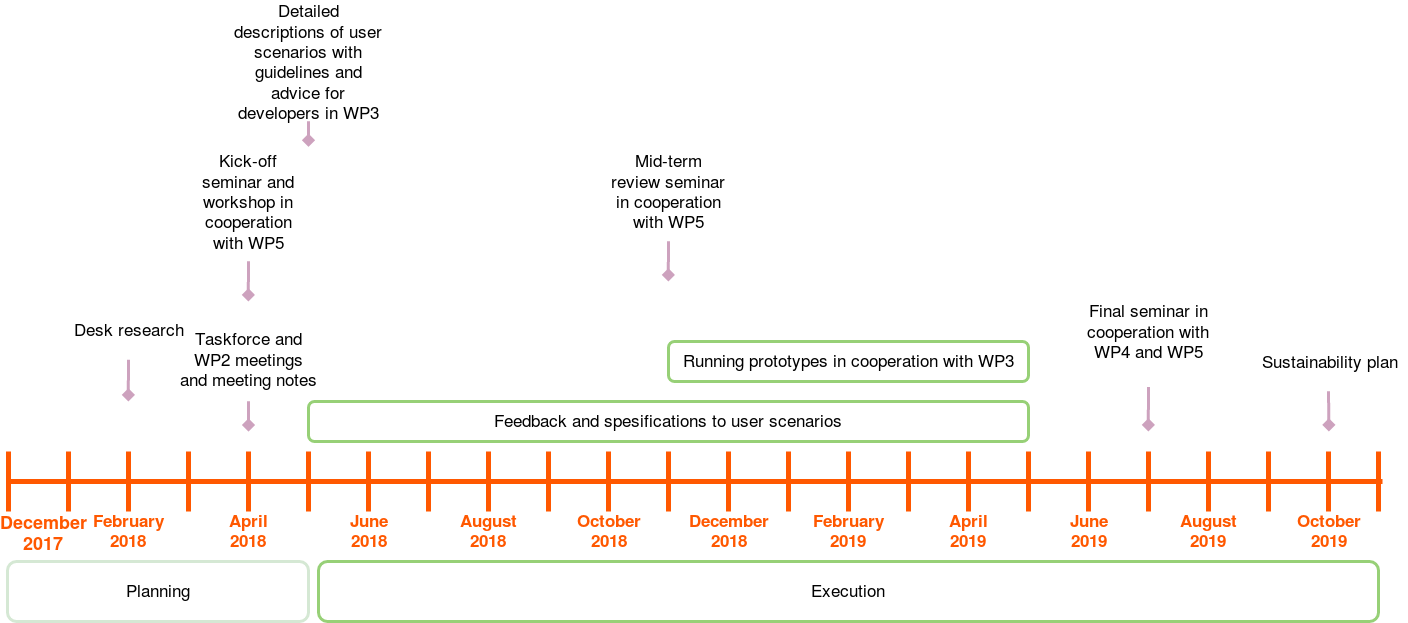
WP2 is responsible for innovating and designing the ecosystem and its modules. The work package is responsible for studying the requirements to build digitalised learner ecosystem for the digitalised services. This human-centred approach to personal data management and processing reflects strongly the Nordic Mydata concept that aims at strengthening digital human rights while opening new opportunities for businesses to develop innovative personal data-based services built on mutual trust. The project will look also into the ways to include individual’s past achievements such as certificates electronically in machine-readable form to the self-assessment and application processes using e.g. Erasmus+ funded EMREX tool or other technical solutions. In this work package, the ecosystem architecture is devised and it is used as a reference throughout the project. This model is the input to the taskforces included in the WP2 as well as to WP3, WP4 and WP5. |
What has been going on?
This WP has set out to define the framework for the project including the definition of the user scenarios, main architecture aspects and system requirements that will be exploited by the other WPs.
The goal has been to look into various processes within the ecosystem, describe potential user scenarios and finally outline the requirements for the prototype versions.
To acquire relevant user stories, the WP 2 has engaged with stakeholders in the process by organising a kick-off seminar for interested stakeholders to engage them to the project as reference groups. Feedback from the stakeholders has been crucial to guarantee the innovative and applicable nature of the user scenarios. The composition of reference groups represent various expert views on skills formation needs including immigrants and refugees. In M4 a kick-off seminar with workshops was organized for all partners and other interested and opinion-forming parties in cooperation with the WP5. The seminar was a forum to exchange expertise, experience, technical solutions to some recognized problems.
To achieve this WP2, activities and deliverables are arranged around 3 thematic tasks with owner(s), contributors and peers.
Contact information: annica.moore(at)oph.fi |
| Tasks |
|---|
T1.1: Architecture and interoberability (TF-AI): developing the Ecosystem Architecture framework, by incorporating the principles of standardization, interoperability and service-oriented architecture to create the conditions for sharing components and for better integrating developed system(s) across the Europe |
T1.2: Personal learner plan (TF-PLP): developing the electronic personal learner plan with tailored tools, contacts and information on opportunities relevant to support citizen to start, progress and finalise the journey. This means development of a personalised learner plan that includes several independent but interconnected modules from visual and functional point of view. |
T1.3: Learning environments and analytics (TF-LEA): explore next generation digital learning environment to meet the changing needs of learning society. Its principal focus is on personalisation; analytics, advising, and learning assessment; collaboration; and accessibility. |